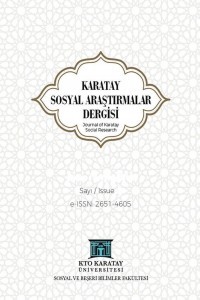SLAVOJ ŽİŽEK, YAMUK BAKMAK: POPÜLER KÜLTÜRDEN JACQUES LACAN’A GİRİŞ
Gerçeğin ne olduğu insanoğlunun kadim meselelerinden biridir ve bu kadim mesele anlam ile doğrudan ilişkilidir. Anlam ise hayatı yaşanılır kılan en temel motiftir. Zira insan bir şeyi anlamlandırabildiği oranda mutmaindir. Bu bağlamda modernite öncesi dönemde gerçek olgusuna hakikat kelimesi üzerinden üstün/aşkın bir güce nispetle kurulan metafizik ilişki çok daha rahatlatıcı ve bugüne göre çok daha konforludur çünkü anlam, anlayabilene her yerdedir. Modernite bu metafizik ilişkiyi koparmasa da kopma derecesine getirerek hayatın periferisine salıvermiştir. Bu dönemde merkeze yerleştirilerek araçsallaştırılan aklın önü ne kadar açılmışsa soyut dünyanın mimarı anlamın üzeri o kadar örtülmüştür. İnsanın anlam diye bir derdinin olmadığı ya da anlamı bulanların arayanlar olduğu dönemdir. Postmodern dönem ise kopmanın yaşandığı zaman dilimidir ve bu kopma anlamı hayatın içinden söküp savurmuştur. Zaman, anlamsızlığın pazara indirilip anlam diye satıldığı zamandır. Oysa anlam yoksa gerçek de yoktur ve pazarlanan gerçek olmayandır. Söylenebilecek tek gerçek varsa, bu mevzuyu modern (ki dolayısıyla postmodern) paradigmayı kullanarak temize çekmek için yapılan tüm faaliyetlerin birer fantezi olduğudur. Tıpkı Slovaj Žižek’nin Yamuk Bakmak’ta yaptığı gibi. Žižek, Yamuk Bakmak’ta gerçeğin ne olduğu, nasıl elde edileceği, gerçek değil gerçekliklerin var olduğunu ve bu gerçekliklerin içinden nasıl çıkılacağı meselelerine postmodern dönemin içinden bakmayı deniyor.
Slavoj Žižek, Looking Awry: An Introduction To Jacques Lacan Through Popular Culture
What is the truth is one of the ancient issues of mankind, and this ancient issue is directly related to meaning. Meaning is the most basic motif that makes life livable. Because a person is satisfied to the extent that he can make sense of something. In this context, the metaphysical relationship established with the real phenomenon in relation to a superior/transcendent power over the word truth in the pre-modern period is much more relaxing and much more comfortable than today, because the meaning is everywhere for those who can understand it. Although modernity did not break this metaphysical relationship, it brought it to the level of rupture and released it to the periphery of life. The more the mind, which was instrumentalized by placing it in the center in this period, was paved, the more the meaning, the architect of the abstract world, was covered up. It is the period when people do not have a problem with meaning or those who find meaning are seekers. The postmodern period, on the other hand, is the time period in which the rupture is experienced, and this meaning of rupture has been swept away from life. Time is when nonsense is brought to market and sold as meaning. Whereas, if there is no meaning, there is no truth, and what is marketed is unreal. If there is only one truth that can be said, all the activities done to clear this issue using the modern (and hence postmodern) paradigm are fantasies. Just like Slovaj Žižek does in The Trapezoid Look. In Crooked Looking, Žižek tries to look at the issues of what the truth is, how to obtain it, the existence of realities rather than reality, and how to get out of these realities from within the postmodern era.
